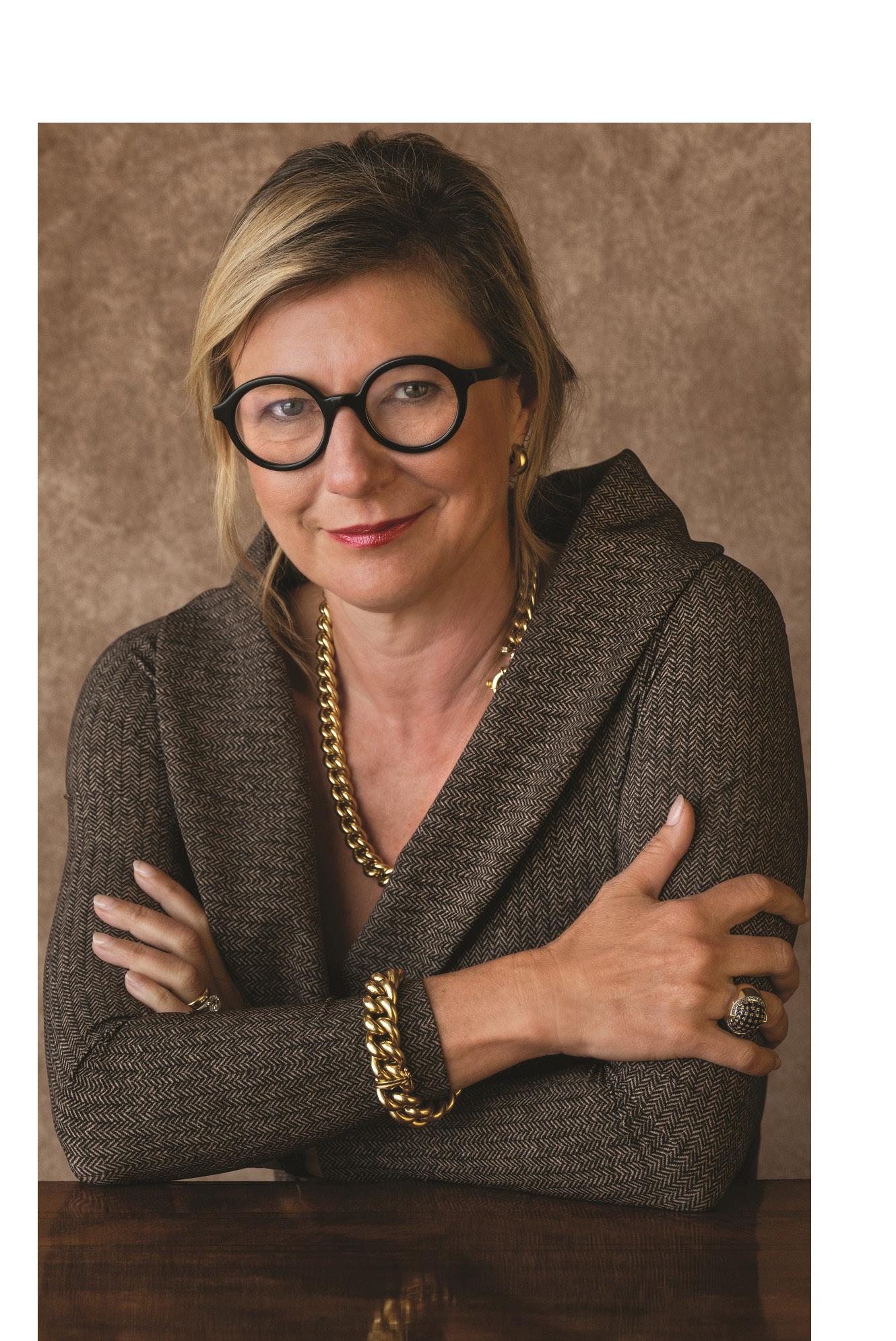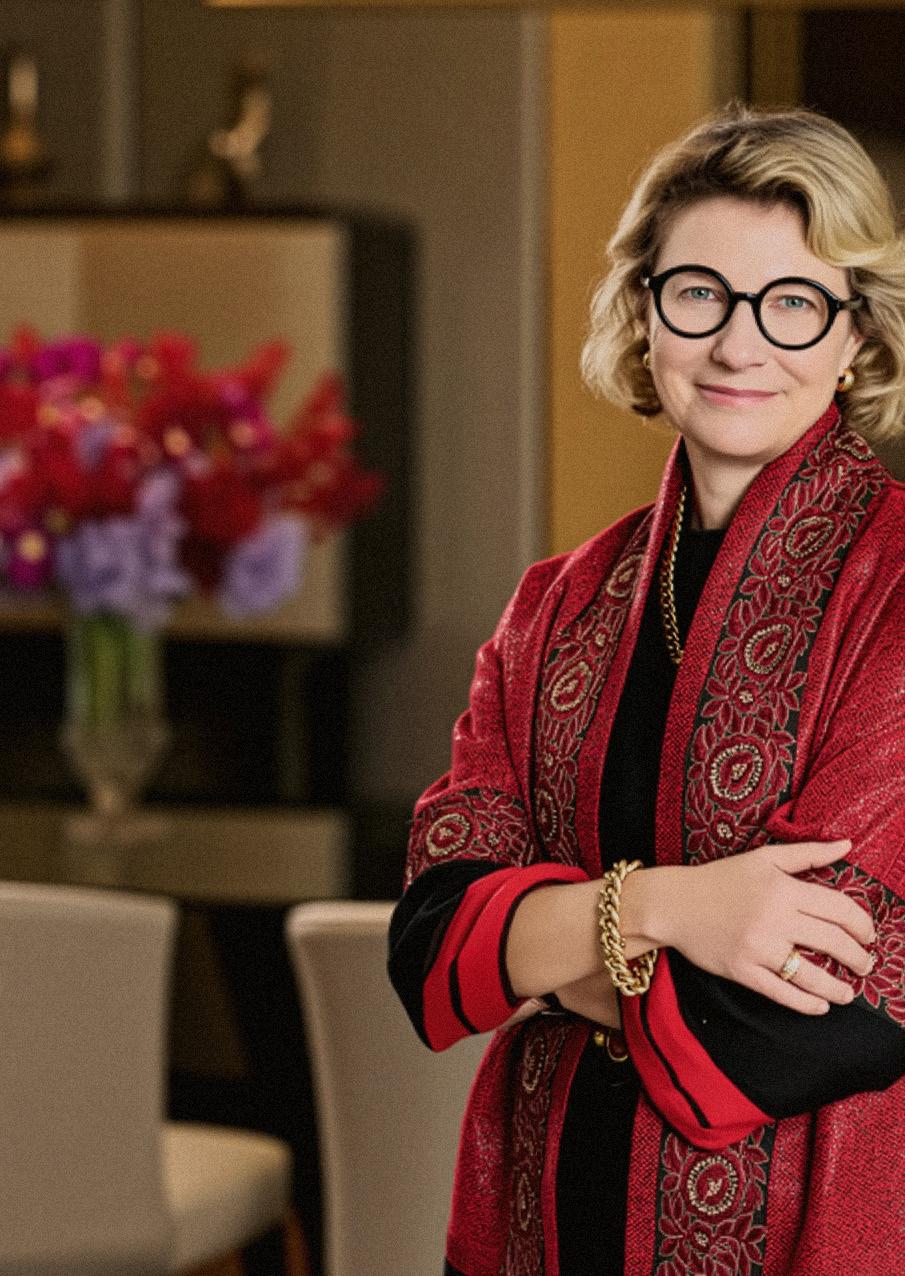Barbara Muckermann: Reimagining Legacy at Kempinski

Muckermann: Reimagining
Barbara Muckermann




An exclusive with the CEO guiding Europe’s most historic luxury hotel brand into the future.
For a company steeped in more than a century of European grandeur, progress can be as delicate as it is essential. Yet Kempinski Hotels, the continent’s oldest luxury hotel group, is embracing transformation with a renewed sense of clarity and confidence under the leadership of Barbara Muckermann, the first woman in its 128-year history to hold the title of Chief Executive Officer.
“It took them more than 125 years to hire a woman,” she says, half smiling, half sighing. “But here we are.” Muckermann brings with her not only decades of experience in luxury hospitality, but a different kind of perspective, one rooted in the cruise industry, where she honed her expertise in sales, marketing, and product innovation. It’s that outsiderinsider balance that she believes is now energising Kempinski’s evolution.
When Muckermann took the reins, she found herself not just at the helm of a global brand, but at the junction of tradition and transformation. “The responsibility of being a custodian of a brand like Kempinski is immense,” she reflects. “This isn’t just a hotel group, it’s a living piece of European cultural history. If something has lasted this long, through wars, global recessions, and shifting cultural tides, it’s because it offers something deeply meaningful. My role is to ensure it continues to do so, just in ways that feel relevant in 2025.”
Her first step was to rediscover the DNA of the brand itself. Muckermann commissioned a team of archivists to explore Kempinski’s roots, sending them deep into Berlin and beyond to uncover the legacy of innovation that originally defined the group. What they unearthed was revelatory: Kempinski wasn’t just preserving tradition, it had built much of it. From introducing aperitifs and pairing oysters with wine by the glass, to pioneering dinner-and-show evenings and developing the world’s first purpose-
Barbara Muckermann
built weekend resort in 1932, Kempinski was always a step ahead of its time.
“It was a hospitality brand that made pleasure a priority before it was fashionable to do so,” she explains. “That spirit of hedonism, of elevating the everyday, is something I’m determined to protect.”
This year’s focus is , Past Forward, which encapsulates that vision. It’s not about reinvention for its own sake but about reflecting timeless values through a modern lens. Muckermann and her team have been reworking the guest journey, stripping out friction points, reconsidering the check-in experience, and leaning into a version of luxury that feels more intuitive than performative.
“You shouldn’t have to feel like you're performing a ritual to enter your room,” she says. “People value time more than ever. What we’re doing now is finding ways to respect that while still offering the warmth and theatre of exceptional service.”
That balance, between precision and personality, has become something of a personal mission for Muckermann. Under her guidance, Kempinski is reaffirming its commitment to individual, destinationdriven hotel identities. While many global chains favour consistency and replication, Kempinski leans into nuance. No two of its hotels are the same, nor should they be. “Our guests don’t want to stay in a room that could be anywhere,” she insists. “They want to be immersed in a place. They want to feel the difference, from the design, to the flavours, to the way the staff speak to them.”
Luxury, for Muckermann, is increasingly contextual. “It’s about the things you don’t strictly need but make your life better,” she says. “For a business traveller, that could be a seamless digital concierge and a chauffeur on standby. For a family on holiday, it’s a well-designed space where every member has their own moment of joy, a kids’ club that entertains, a spa that restores, a terrace that invites stillness.”
While the shape of luxury may change depending on who walks through the door, one principle remains fixed: authenticity. And perhaps nothing embodies that more than Muckermann’s desire to remove sustainability from the branding lexicon entirely.
“I hope that before the end of my career, we stop talking about sustainability,” she says flatly. “Not because it’s not important, but because it should already be embedded into everything we do. It should be as routine as offering a great cup of coffee at breakfast.”
That isn’t to say Kempinski isn’t acting, far from it. Muckermann speaks enthusiastically about one pilot project currently underway: smart waste bins that analyse leftovers from breakfast buffets in real-time. “They tell the chef what’s being wasted, too much falafel, not enough frittata and the kitchen adjusts the next day’s prep accordingly,” she explains.
Still, she’s clear: technology is there to enhance the experience, not replace it. “What we need to do is use data to give our staff more time to connect with the guest,” she explains. “The future of hospitality isn’t about digitising warmth, it’s about clearing the path for it. The smile, the gesture, the moment of kindness at reception, these are what guests remember. Not how fast the Wi-Fi was.”
Despite her optimism, Muckermann is also a realist when it comes to the wider industry. She’s wary of the rampant proliferation of brands in luxury hospitality, many of which feel more like corporate stopgaps than coherent concepts. “We’re launching too many brands,” she says. “It’s confusing to the customer. If even I, who am paid to understand this sector, can’t keep up with them, how can we expect the average traveller to?”
For her, the true power of a brand lies in its clarity, in standing for something distinct. “The best brands don’t need to be sold,” she says. “People are drawn to them because they resonate on a personal
level. They evoke emotion, trust, and expectation.”
That long-term view is part of what makes her tenure at Kempinski so compelling. She isn’t simply trying to keep up with trends, she’s distilling them. And in doing so, she’s building a future that values clarity over clutter, experience over gimmick, and meaning over marketing.
The horizon is vast. Consolidation is coming, particularly in fragmented markets like Italy, where 90% of hotels remain independent. There are still inefficiencies to be resolved, value gaps to be closed, and global standards to be refined. But Muckermann is undeterred.
“These last five years have been among the most interesting for hospitality,” she says. “We’ve seen the collapse and the resurgence of global travel, we’ve seen the emergence of new traveller expectations, and through it all, we’ve seen a renewed desire for genuine, human connection.”
That, ultimately, may be the most important legacy she leaves behind: a return to soul, in an industry too often distracted by spectacle. At Kempinski, luxury is not just about linen thread counts or Michelin-starred dining, it’s about how a guest feels when they arrive, and even more so, how they feel when they leave.
“People will forget what they paid,” Muckermann says, “but they won’t forget how we made them feel.”
And in the hands of a CEO who understands both the head and the heart of hospitality, Kempinski’s next 125 years look set to be every bit as enduring as its past.
www.kempinski.com



